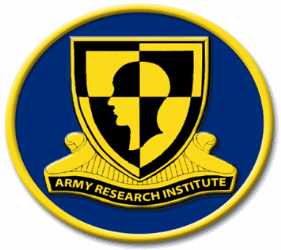DHB Virtual Worlds: An Exploratorium for Theorizing and Modeling the Dynamics of Group Behavior.
This major inter-disciplinary research effort will use virtual worlds as an exploratorium to theoretically extend and empirically model the dynamics of group behavior. In the process it will develop novel computational techniques for analyzing large-scale networks, which will have applicability across a wide variety of domains. The most important and complex decisions made by governments and organizations occur in group contexts. A central challenge, spurred by new developments in information technologies (IT), is that the nature of groups and how they operate has changed radically.
Today, many groups in social, political, and economic contexts – are ad hoc, agile, transient entities that emerge from a larger primordial network of relationships. For a short time, these groups accomplish a variety of tasks, and then they dissolve, only to be reconstituted later with a different configuration. While there is growing awareness of the socio-economic consequences of these groups, our understanding of how they form and their impact on effectiveness is severely limited. This project will address this limitation by developing a theoretical framework that reflects the contemporary conceptualizations of groups. It proposes a network approach to modeling the eco-system of overlapping and constantly changing groups that constitute the fabric of contemporary society. It recognizes that empirically testing such a model poses formidable data collection challenges.
However, a unique resource available to the research team is access to all behavioral traces (server logs) from one of the world’s largest Massively Multiplayer Online (MMO) games, EverQuest 2, which is particularly well-suited to theorize and empirically model the dynamics of group behavior. MMOs comprise tens of thousands of players who are at any one point in time coalescing in thousands of groups to accomplish “quests” and “raids” that involve a variety of activities similar to tasks we undertake in real life finding information or materials, making, selling or buying products and services. Beyond the data collection challenge, the scale of the proposed research enterprise also poses significant computational challenges in uncovering and analyzing the complexities that govern the dynamics of group behavior in these virtual worlds.
Using advanced computing applications and technologies, this project seeks to capture, infer, and model the networks that explain how groups emerge and how they function. Specifically, the researchers will use temporally evolving graphs to model such networks, and develop scalable algorithms to compute metrics of group behavior on them. Tying these complex and shifting individual and networked behaviors to traditional forms of analyses represents a novel interdisciplinary challenge in both scope and complexity. The project will expand our knowledge of how groups form and operate in larger ecosystems of groups, individuals, and organizations. The analysis of logs generated from Virtual Worlds poses novel challenges from a computational perspective.
This interdisciplinary investigation will result in new (1) information models for modeling the Virtual World, (2) data structuring and algorithmic techniques for data access and analysis, and (3) techniques for computational efficiency. The knowledge and tools developed in this research will allow researchers to understand more fully, and practitioners to cultivate more effectively, the emergence and performance of ad hoc groups in contemporary society. It will also provide other disciplines with new computational and statistical modeling methodologies and tools, which should have considerable positive implications for future research in other disciplinary areas. The findings and deliverables of the proposed research will be immediately generalizable to training and education related to groups (beyond just MMOs or Virtual Worlds), social networks, and online games.
As a collaborative study with researchers from many universities, we have collected and analyzed player behavior data from many online games and virtual worlds such as EVE Online, Dota 2, League of Legends, Dragon Nest, Chevalier’s Romance 3, and SecondLife.
Researchers involved:
Yun Huang
Eric Forbush
Anne Xie
The research was supported by grants from the National Science Foundation (#NSF-IIS 0841583) and from the Army Research Institute (#W91WAW-08-C-0106). We wish to thank Sony Online and the Virtual Worlds Exploratorium research group.









